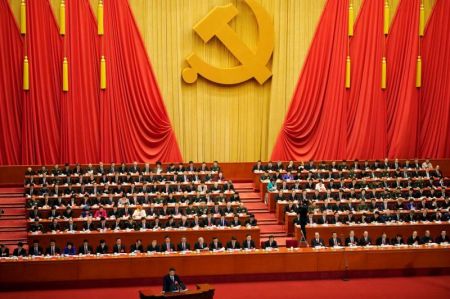China deports 13 South Korean Christian families for 'being missionaries' amid religious crackdown

Thirteen South Korean families living in China as part of a mission group were deported after Communist officials decided the Christians’ stay in the country was “illegal” due to their evangelistic work.
Recently, a Korean missionary who was deported from China a year ago recounted to International Christian Concern how the Chinese government attempts to curb Christianity and limit the number of North Korean defectors by deporting those suspected of sharing the Gospel.
He shared how, in 2016, the group’s leader arrived at the Yanji station, only to be arrested by security forces. Not long after, authorities brought the rest of the mission team — thirteen families in total — to the police station as well.
Many of the missionaries were arrested from their homes, and the detainees included young children and a senior in her 60s. Following an all-night investigation, police slapped a charge of “being missionaries” to the families and told them their stay in China was illegal given their evangelistic work.
Under Chinese law, foreigners are prohibited from setting up religious organizations or proselytizing in China, although the law wasn’t enforced until President Xi Jinping took office in 2012, according to the South China Morning Post.
However, the missionary told ICC that contrary to the police’s claim, the families were mainly teaching Bible to the North Koreans, who regularly visit China with Pyongyang’s permission—not proselytizing Chinese citizens.
Nevertheless, the families were given a week to sell all their assets, including cars and houses before their deportation. In January of 2017, all 13 families were deported from China.
Soon after, all the churches ministered by Korean-Chinese in Dandong, including the biggest church in Dandong where a Korean-Chinese pastor was ministering around 200 members, were shuttered by authorities.
Later, it was discovered that the security authorities of Yanji had been preparing to arrest the missionaries and end their activities since 2014. To this end, authorities had repeatedly hacked the emails and registered phone calls between the members of the group.
“Such act of tapping the communication is presumed to be an attempt of Xi Jinping’s government to demonstrate its power in the border area, where they see the admission of North Korean defectors as the root of the instability in the region,” notes ICC.
In recent years, China has cracked down on foreign missionaries in the country, expelling thousands of South Koreans accused of proselytizing and helping North Korea defectors.
In 2014, authorities began targeting South Korean missionaries working with North Korean refugees in northeast China. Between late 2015 and early 2016, the provinces of Liaoning, Jilin and Heilongjiang in northeastern China deported hundreds of South Korean pastors and missionaries in an attempt to close down their churches.
However, the crackdown heightened following China’s adoption of the “Plan for the Special Campaign on Legal Investigation and Prosecution of South Korean Christian Infiltrations” last year, according to the South China Morning Post. The document places Korean Christian activities on par with Beijing’s other religious targets – Tibetan Buddhists and Muslim Uygurs in the Xinjiang region.
“Korean churches have a long history of missionary work in China ... but what we have seen in the past 18 months to two years has been a steady crackdown on the part of Chinese officials on South Korean missionary activities in China aimed at helping North Koreans,” Eric Foley, CEO of Voice of the Martyrs Korea, told the Post last year. “It’s a story that has not been told in China or Korea.”
Persecution watchdog Open Doors USA ranks China 27th on its 2019 World Watch List list of 50 countries where it is most difficult to be a Christian.





















